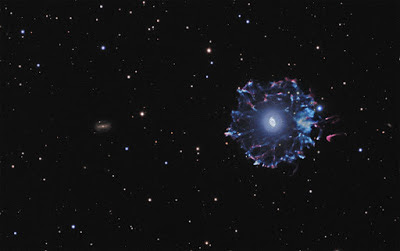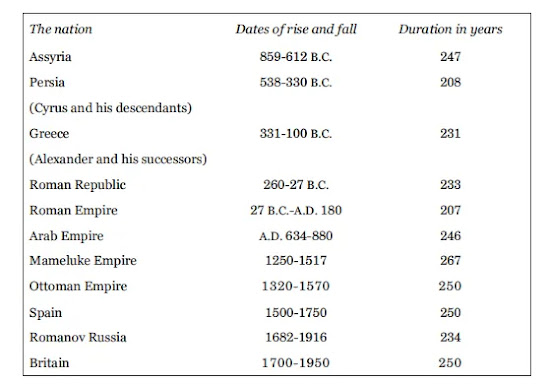"A Time of Unimaginable Sorrow is Upon Us"
By Stucky
"It was a nice cool sunny morning with some blue birds soaking up the sun, all in a row on the high wire. It took some time to figure out what happened. There were a few low rumbles, they seemed to be coming from north of here. We live on a farm out in the wooded hills of southern Missouri, and north would be up towards St Louis. Soon as the booming sounds started the power went off. At first, I didn’t pay much attention, but with all the military stirrings going on in the world these days, you just don’t know what to expect.
I went inside the house, but with the power off there’s no internet, so no way to find out what’s going on. At least until the power comes back on, or until I get the generator started up. More distant thunderous booms that echo now less like thunder and more like tremendous explosions – and I’m starting to get worried. My kids are at work and the grandkids are in school. I swear I‘m seeing sparks and smoke coming from under the hood of my car, but it’s not running. Now the power line where those bluebirds were singing looks like it’s getting really hot and smoke is coming from the bucket transformer on the poles. Wow! The transformer just blew up sending a shower of sparks and molten metal flying all around the pole! I can hear blasts all over the countryside from more pole transformers exploding. All the fences are sparking and smoking. The woods around the power lines and transformers are starting to go up in extremely violent flames. And the cars are now on fire – all of them! Even the old broken-down ones out in people’s pastures. Our emergency generators are smoking – I’ve got to get them away from the houses before they burn up.
Now I’ve got an idea of what’s happening, because I’ve heard of what an EMP event could do to electrical circuits. Electromagnetic Pulse. That’s what happens when a nuclear weapon explodes. The only other thing I can think of that would do this is a coronal mass ejection from a solar flare. It happened back in 1859 and it was named the Carrington Event. Fortunately, the world did not have much electrical infrastructure back then, just telegraphs, and the induced currents caused the wires to catch fire – sort of like what’s happening to the power lines out here right now. I don’t think it’s a solar event either, because the warmongers in Washington have been beating the nuclear drums for a while, and I’ve been afraid the Russians were going to get spooked and do a first strike. I guess this is it.
A big problem for those of us who might survive a while because we live in areas that aren’t targets is that we lose all sources of information. We don’t have any way of knowing what’s happening. Don’t know if it’s a first strike or a retaliatory strike. Does Washington DC even exist anymore, or is it just a huge radioactive smoking crater? Are those beautiful, magnificient buildings of the Kremlin still standing?
How many of our big cities are destroyed? I remember seeing pictures of the devastation that was Nagasaki and Hiroshima when that monster Truman murdered all those Japanese civilians, and thinking that those bombs were tiny compared to what the psychopaths have in their arsenals today – the Russians have bombs that could literally flatten New York City and/or Houston. I cannot, nor can anyone else, begin to fathom the destruction of a 10 or 20 megaton thermonuclear weapon could wreak on a major city.
Lights go off and then nothing. No TV; no internet. No football – the treasury department that writes all the government checks is gone. Fear-crazed citizens make runs on WalMarts and grocery stores and take everything they can. No one tries to stop them; the store employees are in a panic to get home. Problem is, with no operable vehicles, the only things people can take are what they can carry by hand. Everyone has to walk, even the police are stranded out on the highways. All troopers, city cops, and sheriff deputies are trying desperately to get home to their loved ones. No cops on duty anymore. No traffic moving anymore. Just lots of people running, screaming, hoping they can just get home, and that there still is a home.
Fires are blazing everywhere from the power lines and transformers exploding. All electrical substations in the country are smoldering and blazing chaos. Forest fires are rampant and out of control all over the nation and there are no operable fire trucks. No firefighting planes or helicopters are available to fight the fires. Houses hundreds of miles away from the many ground zeros are burning both from the unchecked wildfires, and from EMP induced electrical shorts in home wiring. Almost every building in every town is on fire with no way to put them out. And these towns are far away from the targeted places where the bombs actually hit.
This is truly a catastrophe of unimaginable proportions, the like of which has never been witnessed in all of human history. There will never be electricity in this country again. Let that sink in. Freezers will thaw out and food will ruin. Untold thousands of people will perish, starting with those vaporized, then those being burned up in their homes, and there are no fire departments available to help anyone. No hospitals; doctors and nurses are gone, understandably abandoning useless smoldering medical facilities. No industry, no UPS deliveries, no more dog food for the pups. If your house didn’t burn to the ground, at least you may (for a while) have a (dark) shelter from the elements.
Huge blasts of radioactive winds blow hundreds of miles from the explosions, of which there have been many. The first wave was intended to take out the military establishment. No way of knowing, but there’s no reason to believe that anything remains of the Pentagon, DC or Langley, Norfolk, San Diego, Chicago, Houston, or any of the coastal cities where there are refineries. All cities with military infrastructure of any kind will be destroyed. The joke that has been for years a missile defense system has been exposed. The sick joke that a nuclear war could be “winnable” has also been exposed. The numbers of people succumbing to radiation sickness is beyond belief. There will be no schools, no stores, no food, and no government services; no disaster relief will be forthcoming. All banks will have ceased to function, so even if there is any money left, it won’t be worth anything. The bankers never were.
If you take medications to stay alive, you’d best have a good supply, because there won’t be any more. All livestock will either be dead from radiation, burned to a crisp in the fires, or promptly slaughtered by starving survivors, and it doesn’t matter to whom they belonged. Same with property. People will no longer obey private property signs, they will go anywhere they think there might be resources, food, water, at the risk of their lives, which aren’t worth much right now anyway. There will be no law!
Every military ship on and under the ocean, with the likely exception of a few submarines, will be sunk. All of the nuclear-powered ships will go to the bottom with reactors likely damaged, spewing radioactive contamination. Like dozens, maybe hundreds, of Fukushimas. Even the reactors that aren’t damaged will undergo meltdowns with no controls. The bible says that something will kill all of the fishes in the oceans, maybe this is how that happens.
The USSR detonated a bomb of around 50-megaton yield back in 1961. It was called the Tsar Bomba. The weapon had a 100-megaton capacity, but for safety they modified the yield. Awe inspiring is just too mild of a description of what that looked like. Since the bomb was so powerful, they calculated that the plane that dropped it had only a 50 percent chance of surviving – that is even after the plane released the weapon several thousand feet up in the air with a parachute to slow it down while the plane flew away from the scene at full speed. It did almost destroy the plane – they said the blast wave overtook the plane some 45 miles from the explosion and it lost over a kilometer of altitude before the pilot, Andrey Durnovtsev, could regain control and keep it from crashing. That thing made a mushroom cloud 37, yes 37 miles, (60 km) high! An uninhabited village, Severny, 34 miles (55 km) from ground zero was obliterated, and buildings 100 miles away were damaged! The blast would have caused third degree burns 62 miles (100 km) from the explosion. I would expect if they still have these in their arsenal, they would use one on Cheyenne Mountain. It would probably take out Denver and Amarillo, TX and certainly everything in between. Instantly vaporized. What are our “leaders” thinking?
It sounds crazy, but if this happens, I want to be at one of the ground zeros. As bad as being vaporized sounds, it would be infinitely better than surviving into the nightmarish existence that would ensue. There will be marauding gangs of survivors, undoubtedly armed, in various stages of hunger, disease, emaciation, and injury. It will probably be a situation where anyone you encounter will be apt to kill you. For one thing, they won’t know whether you are out to kill them too, or maybe you have something they want/need to survive. A can of tuna or a bowl of beans might cost your life.
The landscape will be nightmarish. Imagine a few days or weeks after the event. There will be burned out stumps on land that was beautiful forest, now riddled with stagnant pools of black muddy radioactive slime, full of human and animal bones, charred flesh, and entrails. Few buildings will exist intact, and many will perish fighting over them. There will be no light at night. Light would attract unwanted guests. No music. No one will have any idea what’s going on. There may be a few survivors in places like subway tunnels, abandoned train cars, or in remote wilderness areas, but such people will have resorted to the basest of behavior, including cannibalism, in short order. Imagine! Human beings who once inhabited a civilized nation and lived decent lives will have to worry about being killed and eaten by other human beings! Zombie apocalypse, just with regular people, not zombies, although with burns and wounds, hair falling out and all out of sorts with radiation poisoning, they probably will look the part.
I have heard people talking like they plan to survive and stay healthy by hunting and foraging. Well, if a nuclear winter follows a nuclear apocalypse, foraging is going to be slim pickings. And the deer won’t last long if they manage to survive the bombs, radiation, and fires, there’ll probably only be a few very unhealthy specimens left, but if a gunshot rings out, I’m pretty sure it will attract whatever starving people hear it, so there might be more to deal with than just dressing a deer.
Bedraggled survivors will wander in shock around former cities in hopes of disaster relief which will never come. Desperate people will offer anything – gold, jewelry, ammunition, their own bodies, for sustenance. Helpless parents will watch in horror as their children starve, hoping against hope that they will awaken from this nightmare, but when this all comes down, it’ll be too late for them.
And we still won’t know what happened. Who decided that a nuclear war would be a good idea? Who “won” the war? Did any of our leaders survive to sign a surrender, and to whom? Or did Russia or China surrender? Will there be hordes of soldiers from some faraway land invading our country after the radiation dies down?
And what of the wealthy folk who built the magnificent bunkers filled with the necessities of life in which to wait out the nuclear winter? Do they actually believe they will emerge into a second garden of Eden complete with succulent fruit trees and minstrels singing their praises? First of all, the bible speaks of a great earthquake, such as has not occurred since people have been on earth, so I think a big part of those individuals will be entombed in those lavish bunkers. So maybe a few do survive, and after some months, maybe a few years tucked away, they stumble blindly onto the surface, a hardly recognizable landscape littered with human skulls, burned out cars and buildings, and destroyed terrain. When they went into the holes, they were wealthy, but after what has transpired, of the few commoners left, no one will be interested in their gold – and those old bank accounts? Well the digital age has completely and utterly vanished, and all those millions or billions they had on their ledgers is now squat.
Even by this time, there will undoubtedly still be a few scroungy survivors, but instead of the fawning proles these rich folks were used to in the old world, those survivors will undoubtedly have a taste for some well-fed and plump upper crust brisket, so thanks for preserving some. It won’t help their situation any when they discover that some of the survivors actually know they caused, or at least played a part in causing the disaster. The scenario described does not take into account the likelihood that hapless survivors will undoubtedly spend their time searching for air vents to the bunkers in which to pour gasoline or whatever else they can find to upset living conditions in said refuges down below. Any who survive this carnage will be on a mission and will not easily be placated!
Who knows what the final outcome will be. How many millions, or hundreds of millions of people will be counted among the slain? When this calamity happens, it will obviously involve the deaths of millions. This destruction, I believe is prophesied as the destruction of the modern Babylon in Revelation 18, and most people I’ve heard seem to think (as I do) that the place named as Babylon is the United States, and it is utterly destroyed in the space of one hour, by fire! Completely devastated to the point that (verse 22) “the music of harpists and musicians, pipers and trumpeters, will never be heard in you again,” and “no worker of any trade will ever be found in you again,” this decadent place will cease to be! According to scripture, it’s not a bad thing that this evil place is destroyed. “Rejoice over her, you heavens! Rejoice, you people of God! Rejoice apostles and prophets! For God has judged her with the judgement she imposed on you.”
Time will tell, but I’m afraid we don’t have much."
Hat tip to Stucky and The Burning Platform for this material.






















